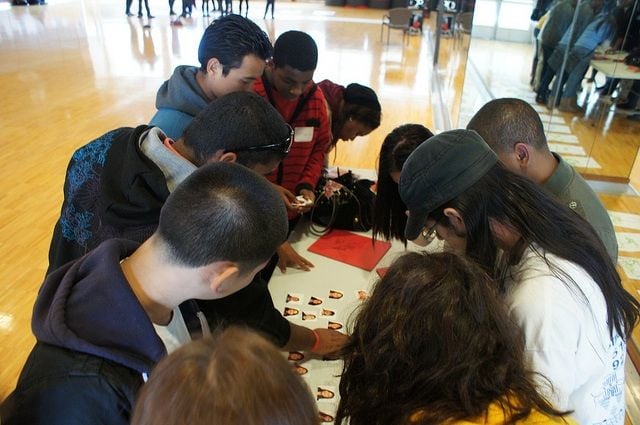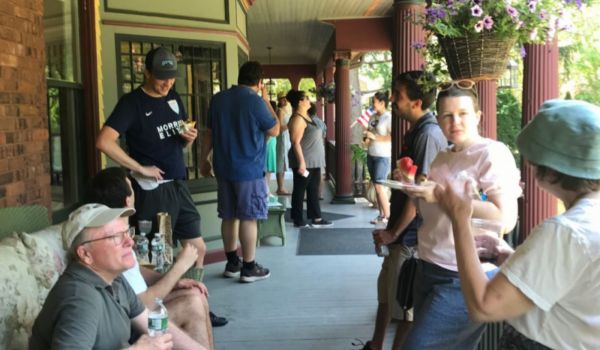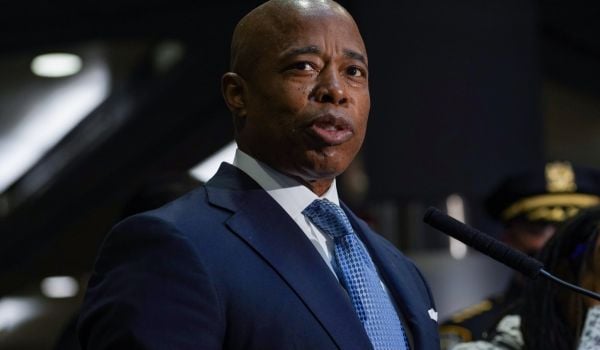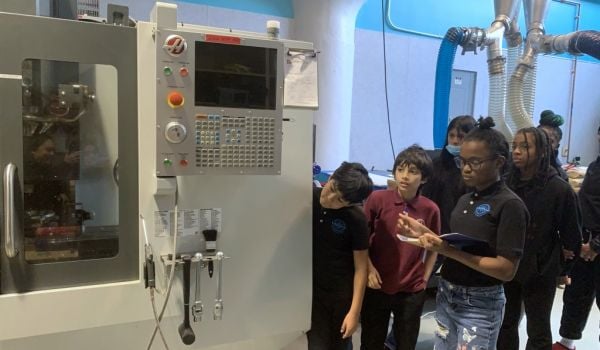Poverty is a root cause of low achievement in school, and most big-city public schoolchildren are poor.
Mediagenic leaders of the school reform movement, such as U.S. Secretary of Education Arne Duncan and former DC schools chief Michelle Rhee , agree with this point, as well do most educators. The bickering comes in when deciding how to tackle the ever-growing epidemic.
For Duncan and Rhee, the answer is found in teachers. They say that by weeding out ineffective teachers using a system of student testing and stringent, punitive teacher evaluation, the life prospects of poor students will improve. Other systems take the approach of shutting down failing schools and hoping that the students left to switch schools do a better job in new, ideally higher-performing classrooms. (Hello Philadelphia.)
Not everyone agrees with these radical approaches. Enter the mild-mannered, rosy-cheeked, bespectacled professor, who argues that in fact, there is a middle ground that doesn’t require mass firings, closing schools or huge infusions of grant dollars to lift poor children above their suburban peers. David Kirp, a public policy professor at the University of California, Berkeley, argues in his new book Improbable Scholars: The Rebirth of a Great American School System and a Strategy for America’s Schools that poor city kids with many demographic disadvantages can indeed learn what they need to graduate and succeed if only given school systems that work better from day one on.
It’s neither sexy nor fast, but long-term, comprehensive systemic change does work, says Kirp, who spent a year inside the schools of Union City, NJ. to find out how. In Union City, 92 percent of the schoolchildren are in poverty and 30 percent of students speak limited English. In 1989, Union City schools were on the precipice of being taken over by the state of New Jersey for poor performance. Nearly 25 years later, 89 percent of students in the district graduate on time and test scores across the grades have nearly caught up to those of suburban New Jersey students, who are among the top performers in the nation.
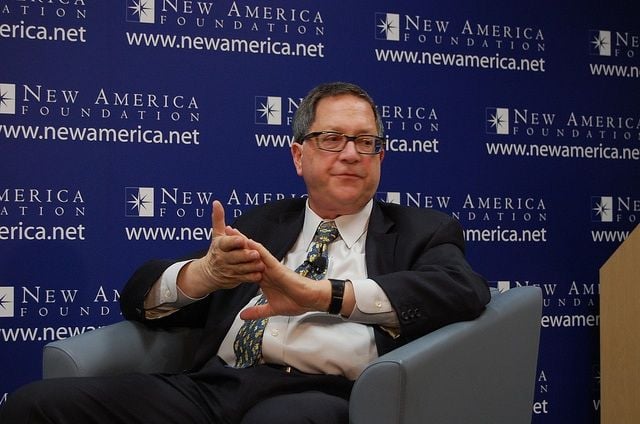
David Kirp doesn’t believe in fast formulas for school around. Photo credit: New America Foundation
The secret formula is boring. “You start with great pre-K and work your way up,” Kirp told the hometown crowd inside the gleaming, four-year old Union City High School auditorium last week, “with a rich bilingual program, grounded in the home language, use frequent assessment of students to point out where students and teachers are struggling, have a coaching mentality, and a common curriculum. The tortoise beats the hare.”
Stability in leadership is also key. Most urban superintendents leave after two years, pushed out by politics or the demands of the job. In Union City, “Superintendent Stanley “Sandy” Sanger has been on the job for 24 years.
“Union City reminds us that there are a handful of time-tested game-changing strategies,” he told the hometown crowd. “The trick is to go from saying yeah, that’s a good idea to making it happen.” He acknowledged, however, that this kind of incremental change was not failproof. “I don’t want to say you can leave every school district alone and it will be ok. Were it so, Camden [which was just taken over by the state of New Jersey] would not be in the fix it is today.”
So why is Camden now under state control because of its failing schools not Union City and vice versa? Both poor cities receive substantial aid from the state of New Jersey and federal Title I funds based on their number of at-risk students. But Union City, said Kirp in an interview, “has community strength, pride, initiative, and a strong and honest mayor… . How many of the last mayors of Camden have been to prison?” (The answer is three of the last five.)
Both Superintendent Sanger and Mayor Stack have been on the job for years. Leadership matters. But it is leadership that cajoles, that works 24-7 (Stack is famous for handing out his personal cell phone number on his business card), and that collaborates. And good leadership can be as fickle as school reformers see good teaching to be. In addition to full funding, invigorating urban schools does require better superintendents and empowered politicians—but local ones, who know their communities.
Other districts Kirp examined also saved themselves without cash infusions from famous entrepreneurs or state takeovers. Aldine, TX is like Union City, NJ—except bigger and with less money. It, too, was a system failing its students in the 90s. A longtime teacher and principal became a new superintendent in 2007 and drew on the local teachers’ deep-rooted sense of place to engage them in rewriting and standardizing the curriculum together. Test scores and graduation rates soared. Montgomery County, MD, is another favorite case study, where a strong superintendent has given more funding and resources to the worst schools in his district, standardized curriculum expectations, and expanded preK. The grownups in these places all found their way to take a deep breath and play nice.
“Someone asked me how are we going to get pre-K teachers to be as good as regular teachers,” said Kirp. “I said, hopefully, pre-K teachers can teach others. Good education is pre-K education made developmentally appropriate for older kids.” That means no more lectures in front of a room of bored teenagers but small group work and project-based learning—just like the three-year-olds.
In the end, President Obama’s call for universal pre-K puts the attention on best practices not just for future four-year-olds but on those for full-grown adolescents in school today. Adept social skills, hands-on learning, and success through collaboration—with lots of check-in with assessments and fine tuning to address deficits—may not only save our schools but the political classes as well.

Carly Berwick writes about education and culture for Next City, as well as The New York Times, ARTnews, and other publications.

